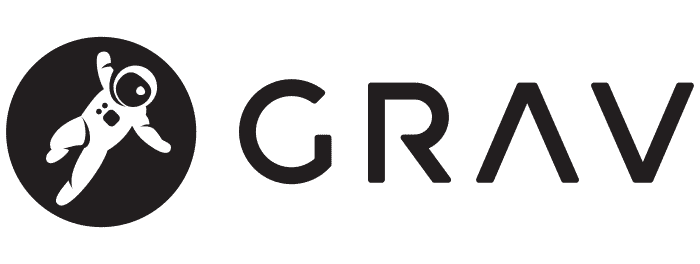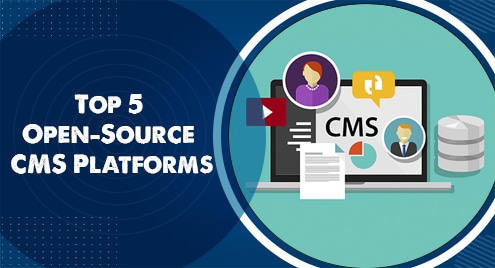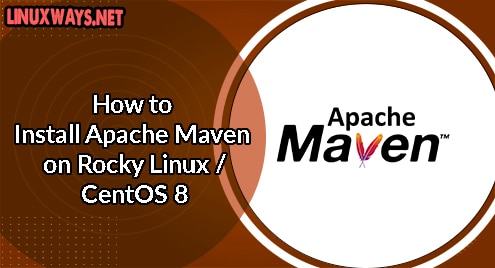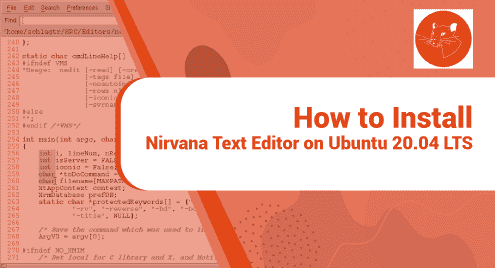In this age of digitization, everything has come online. Businesses, education, health – each paradigm has extended its existing boundaries to the world wide web. To add much to the intensity of this, Covid-19 has brought every paradigm online, that had initially somewhat restricted or restrained to the effects of the growing digitization. Thereby causing every person or business to seek assistance in creating and establishing a presence on the web by creating websites. Hiring software development experts is not a favorable condition for many people trying to create websites, mostly due to financial restraints or simply because people want to be the creators of their websites and are keen to learn and adapt to growing trends and technology. Content Management Systems (CMS) is the solution for such situations.
The CMS allows users to create websites themselves without having to learn different programming languages and other related website creation technicalities. Usually, to create a website, an in-depth understanding of HTML, CSS, and JavaScript is required along with the knowledge of the tool to program or code the website. CMS handles everything on its own. The user simply has to tweak the stuff on the frontend whereas the backend is seamlessly handled by the efficient CMS platforms. There are many CMS platforms available online allowing users to create their websites without the help of an expert. Though, still, if help or assistance is required, tutorial videos, blogs, and support are provided on the CMS platforms to resolve any issues. This article provides a detailed analysis of the best CMS platforms available and leveraging the best possible means or features required to create a website with absolute ease and efficiency.
WordPress

The most popular, efficient, easy, and comprehensive platform providing all necessary features to make any website, since 2003. The platform holds the title of creating and powering 39.5% of the currently existing websites. The open-source and cross-platform compatible CMS tool can make any website ranging from a comprehensive eCommerce website to your daily blogging page.
Some of the most liked and appreciated features of the platform include its extensive list of templates and themes from which users can select and customize the theme or template according to their requirements and needs. Moreover, the variety of more the fifty-five thousand available extensions and plugins allow a user to add and integrate any feature into their website. Due to its large community of active users and contributors, users can get instant assistance and a number of new features every day. The simple and easy platform allows efficient installation mechanisms and ease of use. The extensive platform allows not simply allows an easy interface for website creation, but it allows users to get their website in XML, so to allow them to easily shift to any other platform if they require to in the future.
Despite having a large pool of users and contributors, the platform can pose a threat to large enterprise solutions. This is because the platform can become relatively slow and inefficient for large websites but can easily work with and seamlessly support small-scale websites. The platform can also be prone to hacks and security threats as this is the most popular platform and used by many, however, the daily and quite frequent security updates installation can resolve and somewhat eliminate this issue. But not all integrated plugins and extensions can be compatible with the updates thereby, again proving the platform’s inefficiency for larger websites with many extensions and plugins installed. Still, WordPress is the choice and preference of many due to its easy interface and efficient performance for most businesses and websites.
Get it now from https://wordpress.org/download/
Joomla

Released in 2005, Joomla is another very popular CMS platform capable of creating any user-required website. Joomla, like WordPress and Drupal, is a cross-platform and open-source CMS tool, thereby allowing users to create great and efficient websites from any user’s desired operating system. Joomla is another very popular CMS platform powering 2.1% of websites around the globe. Though in comparison to WordPress the percentage is significantly low but with each day passing, the platform is gaining more attention and drastically increase in the customer base.
Joomla is a reliable and preferred platform for large-scale and complicated websites. Joomla is packed with unending features and functionalities. The platform offers multilingual support as it incorporates content management for over forty different languages. The extensive list of plugins and extensions allows users to configure different websites from complex enterprise management solutions to simple blogging websites. The diverse list of extensions is divided into plugins, components, modules, templates, and languages. Joomla is the best fit for people having some background in computer science, however, the platform also fully enables a programming novice or a layman even. In general, Joomla provides a modern interface with a variety of extensions along with ease of configuration, different themes, and styles, all integrated into a user-friendly platform.
With the attractive list of infinite features and capabilities, Joomla limits its users in providing access and rights management features. This feature is required in most software solutions these days and makes a solution incomplete without it. Though, the large and ever-growing community of Joomla, we believe the day is not far that the active members and community members will introduce a user access management extension or plugin for the diverse and comprehensive platform.
Get it now from https://downloads.joomla.org/
Drupal

Another very popular CMS platform is Drupal, which was released in 2001. The cross-platform and open-source platform allows users to build seamless websites with a little introduction to website working mechanisms and features. Drupal is the choice of many software systems including some major university’s management portals and for the Economist website.
Unlike WordPress, Drupal does not have an extensive library of plugins and extensions, however, the efficient and very friendly platform enables users to make just any website instantly. The platform works seamlessly for creating, handling, and managing data and content of large and extensive websites. The platform has a modular layout and therefore, the users will have to install various modular extensions to enable different and advanced features required in a system. Drupal is the choice of many people especially the ones dealing with and aiming at making a system capable to handle a lot of data. Drupal offers a simple user interface to add and manage website content. The compact core of the platform makes it a feasible platform to support almost any small to medium-sized website and some of the large websites.
Integrating modular-based extensions in the platform can sometimes seem tricky to the users. Unlike WordPress, Drupal may not offer a very user-friendly platform and might require some expert assistance especially if one desires to make an extended and comprehensive website. Applying different themes and layouts in Drupal may not be as easy and straightforward as WordPress. However, the Drupal community is an extended one as well and can provide support and guidance to any user query or issue.
Get it now from https://www.drupal.org/download
WikiSuite

WikiSuite – by EvoluData, is a comprehensive and integrated open-source and cross-platform compatible enterprise solution that offers a variety of features and functionalities. A key component of WikiSuite is Tiki Wiki CMS Groupware (or Tiki), a full-featured web application platform. Of these features, Tiki Trackers are the “database” component that provides the organization with collaborative tools needed to receive, manage, process, and share data such as Configuration Management process details. Through the application and configuration of Tiki Trackers, EvoluData has assisted numerous businesses and organizations in transforming their data management processes. Tiki Trackers, which are highly flexible and completely configurable, easily allow the building of extended database web applications within the Tiki web platform. This solution helps organizations collect and organize data and generate various reports and statements to perform data analysis.
Though the platform is not as popular as any of the existing CMS platforms, however, the extensive and diverse features and capabilities of the platform makes it efficient enough to create, develop, support, and maintain any website of any scale, i.e., the platform is capable to seamlessly handle small, medium, and large-scale enterprise software solutions. The interactive and simple user interface enables users to readily adapt to and create comprehensive and advanced websites. However, users can face some drawbacks in terms of the limited community. Still, the active developers and support team is available round the clock to answer and respond to any user query and resolve their issues.
Get it now from https://wikisuite.org/How-to-install-WikiSuite
Grav

As fascinating as its logo, the Grav CMS platform is another modern, sleek, and interactive cross-platform compatible platform to design and create websites. Not as popular as others in the list, i.e., WordPress, Joomla, and Drupal, this CMS platform is yet a tough competitor of the existing CMS giants. The open-source CMS platform was launched in 2014 and since then the platform has managed to power 0.1% of total existing websites.
The platform numerous features and functionalities along with an intuitive and modern user interface, different and attractive themes and templates, an extensive list of extensions and plugins for integrating advanced functionalities, dynamic content and image processing system, and many more. Grav supports a flat-file architecture makes the Grav CMS adaptable and much efficient. The platform offers easier installation and easier mechanisms for searching and integrating different extensions. Another unique feature of the platform is that it functions and works without any database management system, i.e., it saves all the important information in files and then saves these in a corresponding directory structure. Grav is more suitable for smaller websites. However, many already created and structured website templates are available in Grav for almost every business and user interest. Grav’s growing and efficiently contributing community is soon going to take Grav to the top of the list of many reviewers and users.
Get it now from https://getgrav.org/downloads
Closing Remarks
The discussion clearly shows that open-source and cross-compatible CMS platforms are a great decision for both a programming novice and a computer science expert. CMS enables users to readily develop websites by mere drag-and-drop or by simply configuring the ready-made templates. The platform enables the experts to catch the bugs or flaws and then contribute to the development of the platform and enhance its extensive capabilities and extensions. The listed CMS platforms are all one of the best currently available CMS, and so whichever platform is adopted by the user, can surely yield the utmost results. However, the decision of selecting the CMS platform greatly depends on the nature of the desired project. We see that many CMS platforms, to some extent, limit their capabilities for the development of large-scale projects. Therefore, for small to medium-sized enterprise solution websites, all the CMS platforms, i.e., WordPress, Joomla, Drupal, WikiSuite, and Grav can provide excellent outcomes and can offer almost every user-required feature. Nevertheless, the ever-evolving and growing CMS communities are adding to the extensive functionalities and features of the CMS platforms every day thereby assuring their reliability, efficiency, and security. Therefore, the day when these CMS platforms will be able to support large-scale enterprise software solutions is most definitely, not far.




